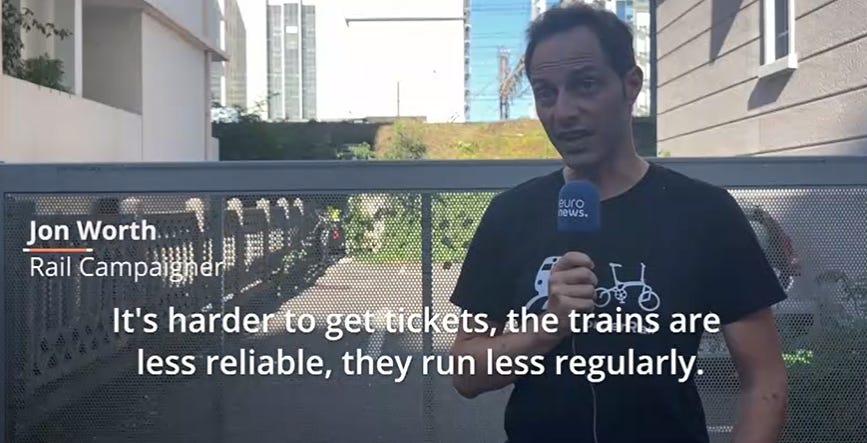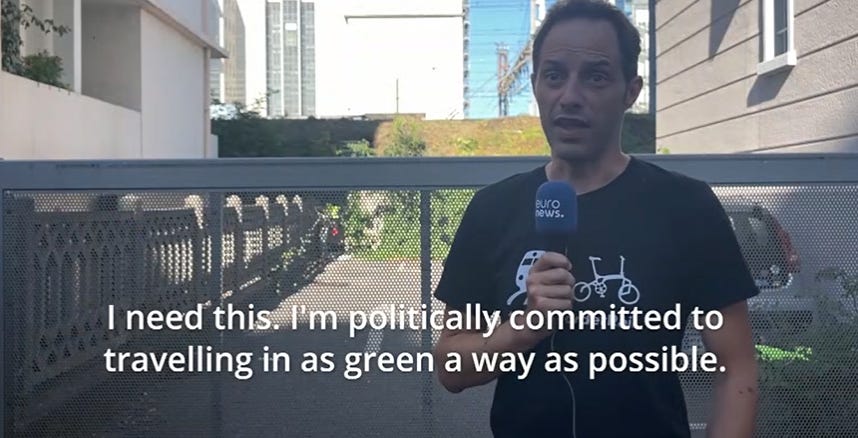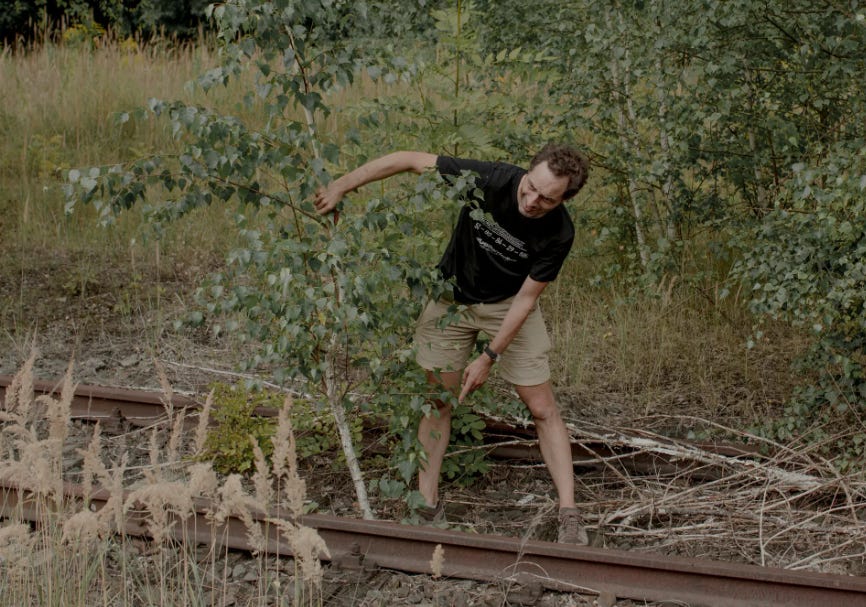I Miss Jon Worth. We chat with each other when U.S. - E.U. fiasco about stockpile of covid vaccine (thanks Trump, for WARPSPEED operation, then, 90% stockpile vaccine in EU goes to US - lol), around February 2021. We replied to each other, trying to find out where the actual plant site is in every big pharma in Europe and the UK. Find out Mainz Germany, also some villages in Belgium, and 6 places in the UK, 2 places in Italy, etcetera etcetera.
He famous. He created his fame from zero, from blogging about UK politics, since John Major (or even longer). Indirectly, I admire him and try to write more and more (writing) in substack, after “unsatisfied” via Facebook Notes, Medium, tumblr, or personal website (not 100% personal, but 4 persons who created 1 web). Jon even dont care to every mentioned to him from “Weird ACCOUNT” (a hundred people, paid by some companies, who try to kill me and my mom, and smear me with systemic fitna/false accusation). I count every person like Jon, who care me and “bodoamat” don't care with weird account. Oh yes: the weird account even created (hundred) “impersonate account/burner account” with a name similar to me in FB Twitter Instagram and even LinkedIn. Of course, if you get paid, you systemically - full concentration, to destroy me. I insist on fighting back. Settle a score. Of couse, material and immaterial, I am losing billion rupiah because this systemically attack.
Jon don’t care if he loses his connection on Twitter. He abruptly closed his twitter account. Not close, in detail: no longer to use Twitter, a protest to Elon Musk. He advocates everyone to (abruptly) use mastodon.
Twitter is such a worse place for the loss of Jon. miss many great voices from twitter, like his. He hasn’t stopped writing, or writing exceptionally well. He’s just moved off Elon’s Twitter, so it’s up to the rest of us who are still here to make sure you see what he’s up to.
Like Jon, in Indonesia, I’m politically committed to traveling in as green a way as possible. Use commuter line train.
The lanky man bent down to examine a rusted railroad track that cut across the empty square of a small, forgotten town, shaking his head at the weeds poking up.
“Disappointing,” was his verdict, the ruling perhaps influenced by the shuttered brick train station accumulating cobwebs in the German border town of Seifhennersdorf, not far from the Czech Republic.
By profession, Jon Worth is a university lecturer in political communications. By passion, he is the self-anointed inspector of Europe’s railroads. And he has tasked himself with addressing a dilemma: Why isn’t it easier to traverse European borders by rail?
No one asked him to undertake this mission, but his justification is clear. In order for Europe to live up to its ambitions to lead the globe to carbon neutrality, it needs to get people out of planes and cars.
On paper, Europe’s train system has a leg up on many parts of the world, including the United States. Yet its railways could almost be an allegory for the European Union itself. From the outside, the system seems boringly functional. Scratch beneath the surface, however, and you discover a tangle of bureaucracy, finger pointing and the kicking of problematic cans down the road — or rails.
Bridges once spanning borders have lain in ruins since World War II. A multimillion-euro line between Paris and Barcelona, offering spectacular vistas, could be transporting train-loads of people every hour. Instead, its cross-border routes lie unused most of the day.
Traveling high-traffic commercial routes, like Paris to London, can cost hundreds of euros more than flying. Want to ride the rails from Tallinn, Estonia, to Riga, Latvia? Good luck. The national railways involved refuse to coordinate train schedules.
And travel sites for international rail bookings — for instance, the equivalent of Kayak or Skyscanner used for airplane flights — somehow either fail to exist or are difficult to find.
To understand why — and to attract attention to the problem — Jon Worth began a one-man grassroots campaign this summer that he calls the Cross Border Rail Project.
Using crowdfunding to buy a drone, a camera and a gauge to measure trains’ air quality, he has traversed every E.U. border to determine where international rail systems work, where they don’t, and what could be done to fix them, then documenting his findings. At each stop, he writes a postcard detailing his findings to the E.U. railways commissioner, offering his recommendations.
(train/trem in Lisbon)
“Lisbon is supposed to be one of Europe’s 100 climate-neutral cities by 2030,” he said. “But how the hell do you get to Lisbon by train? It’s next to impossible. You shouldn’t have to be an expert to book a train.”
With rocketing price of gasoline, train become popular again especially in Europe, in the wake prolonged war Russia-Ukraine.
In the small but passionate world of European train nerds, Mr. Worth is one of their semi-celebrities. (Another popular train aficionado helping travelers on their journeys is Mark Smith of England, through his website Seat61.com.) Throughout the trip, strangers who knew of Mr. Worth’s project would contact him — and, sometimes, even join him — to share ideas for how to improve the railroads, and to find the most scenic routes, from the Alps to the Baltic Sea.
You can feel the lingering effects of World War II on train travel. Unexploded World War II ordnance remain a fairly common travel disruption in Germany.
But (sometime) Worth’s journey exposed another type of problem, too: rail theft. Facing reroute on the German-Polish border because thieves had stripped train signaling cables of copper wires. Deutsche Bahn, the German national railway, said it needed three months for repair.
Poland and Germany signed an agreement in 2003 to electrify their cross-border lines. But nearly 20 years later, Berlin has still not honored its part of the deal. The electric wiring on the Polish side has never been used; effectively, the electric poles were put up as a giant gesture of annoyance. To this day, only diesel trains can cross that border.
“They are basically saying: ‘Hey, Germany, we’ve electrified and you still bloody haven’t,” he said. “When are you going to get on it?’”








